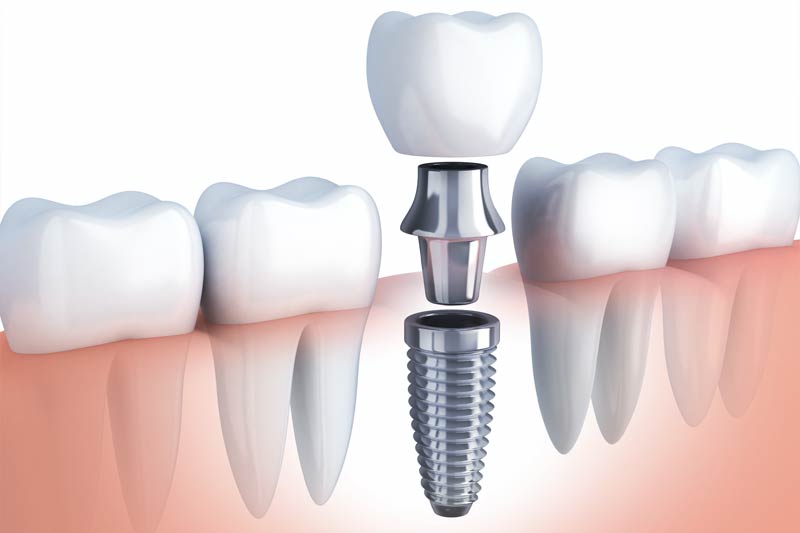Dental Bridges
If you’re missing one or more teeth, then you may consider filling the gap with dental bridgework. This permanent tooth replacement option involves bonding one or two pieces of fabricated teeth known as pontics to the adjacent teeth on either side of the gap using crown abutments. By replacing a missing tooth, you can restore the full function of your mouth, including fluent speech, ample chewing surface, and an even smile.
The false tooth is designed to have a similar form (shape, size, and shade) to that of the missing natural tooth. The crowns attached to the pontic help to hold the replacement tooth firmly in the right place. These crowns can be attached to either the adjacent healthy, natural teeth, or by dental implants if the gap is caused by several missing teeth.
There are many advantages of choosing dental bridgework to fill gaps in your teeth, including:
- Restoring your ability to chew food properly
- Restoring your ability to speak properly
- Restoring the natural aesthetic look of your smile and mouth
- Preventing adjacent natural teeth from shifting and affecting your bite
- Maintaining the normal structure of your face
Am I a good candidate for dental bridgework?
Although dental bridges are common, they may not be the best treatment option for you. Your dentist may recommend dental bridges if you:
- Are missing one or more adult teeth
- Have strong and healthy teeth to support the bridgework
- Have good oral health
- Have good general health, with no severe infections, health conditions, and other health issues
- Have a good oral hygiene plan to ensure long-lasting results
With proper oral hygiene, which includes brushing twice a day, flossing daily, and regular dental visits for prophylactic care (dental exam and professional teeth cleaning), your dental bridgework should last for seven to ten years or even longer. Please consult your dentist to learn more about dental bridgework and your suitability for the procedure.




